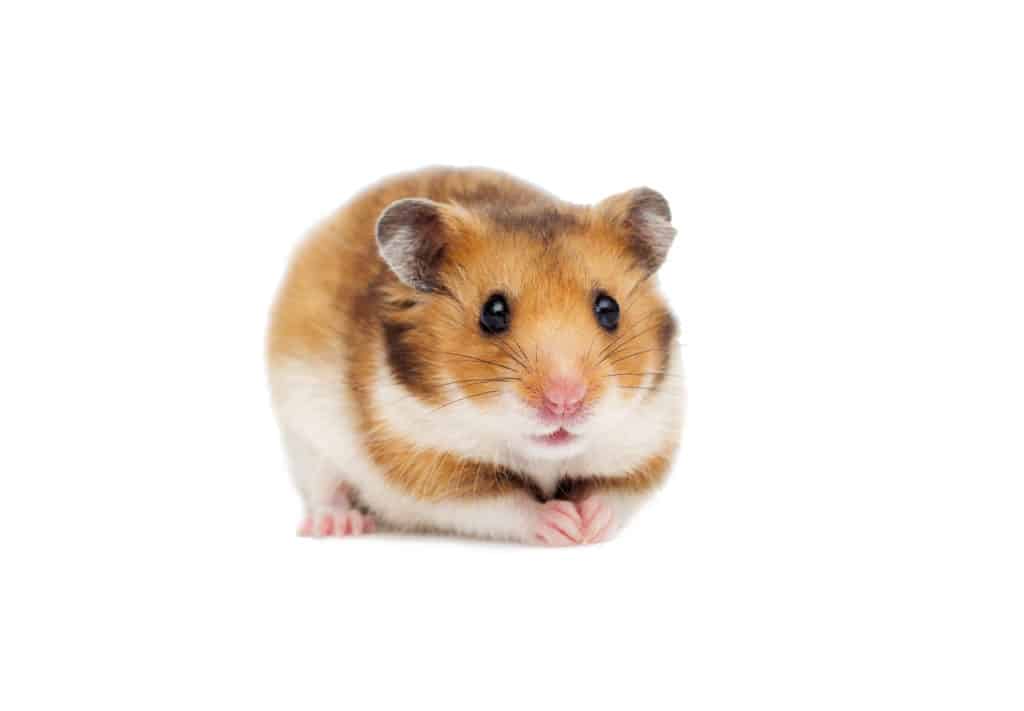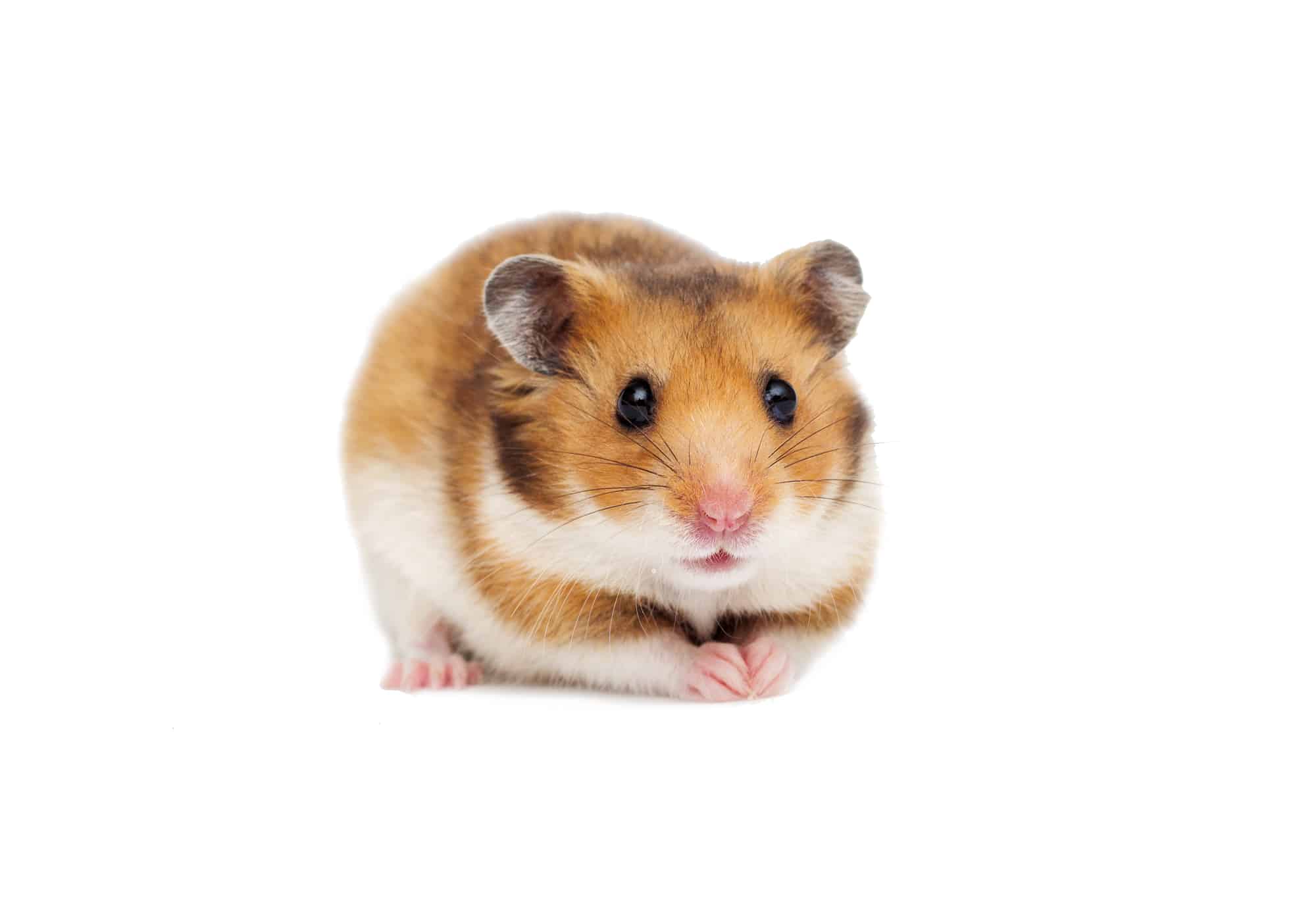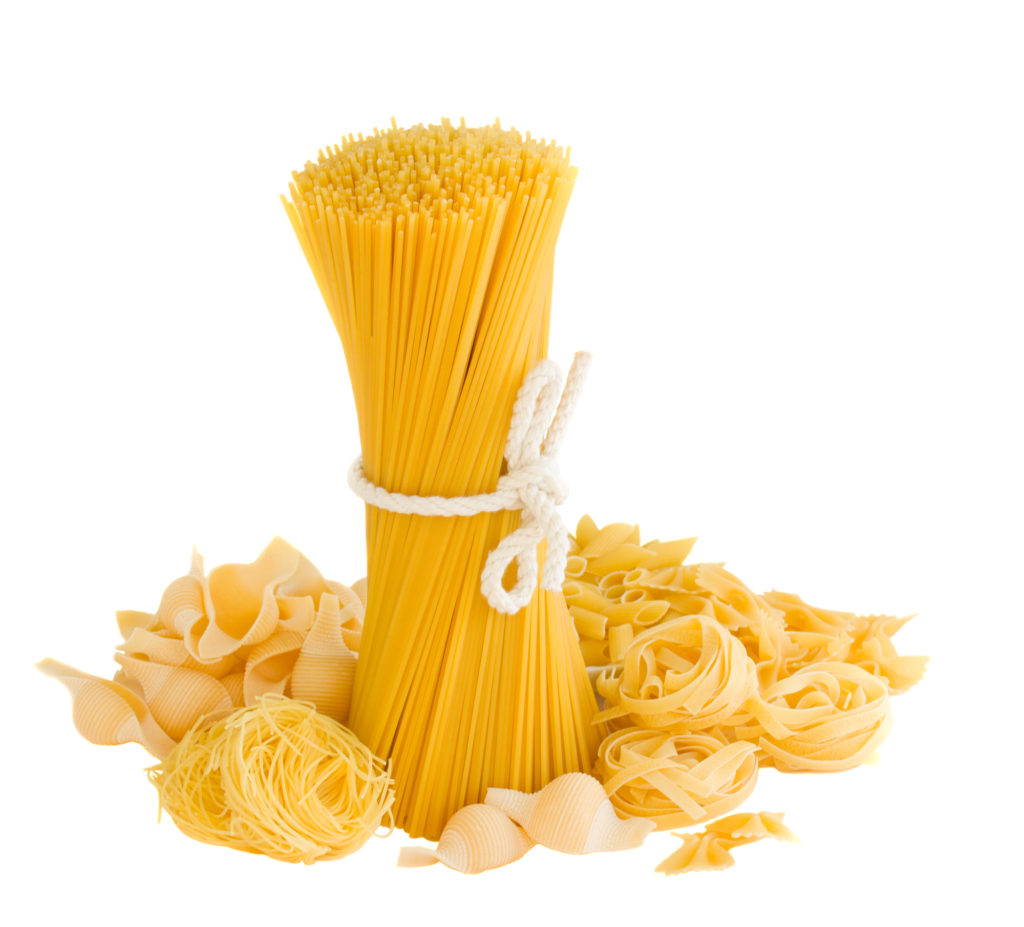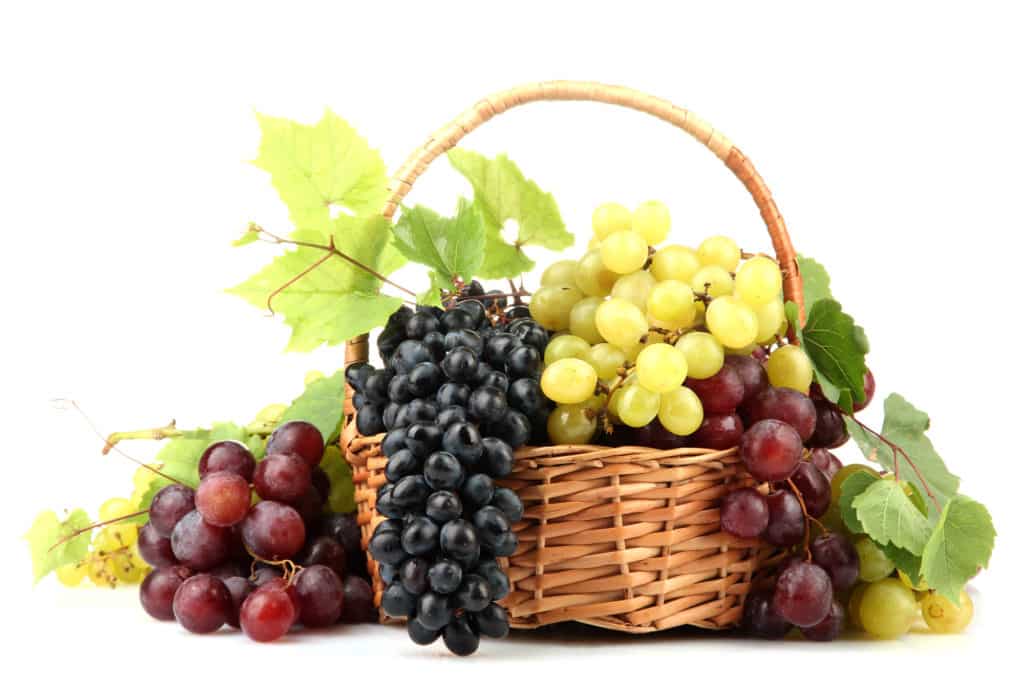Chia seeds are very healthy for the body. So, it wouldn’t be surprising if you have ever wanted to feed them to your hamster. They may be healthy. But can hamsters eat chia seeds? If so, how much can they eat? What are the health benefits and risks of giving chia seeds to your hamster? Find answers to all these pressing questions in this blog post.
Nutritional value of chia seeds
In this section, let’s look at the nutrients 12g of chia seeds contain.
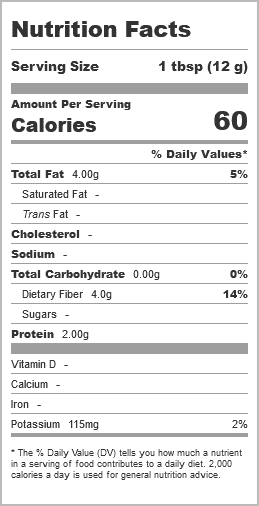
(Source: Fat Secret)
Can you give your hamster chia seeds?
Before we find out if you can give your hamster chia seeds, let’s first find out the health benefits and risks of feeding chia seeds to your hamster.
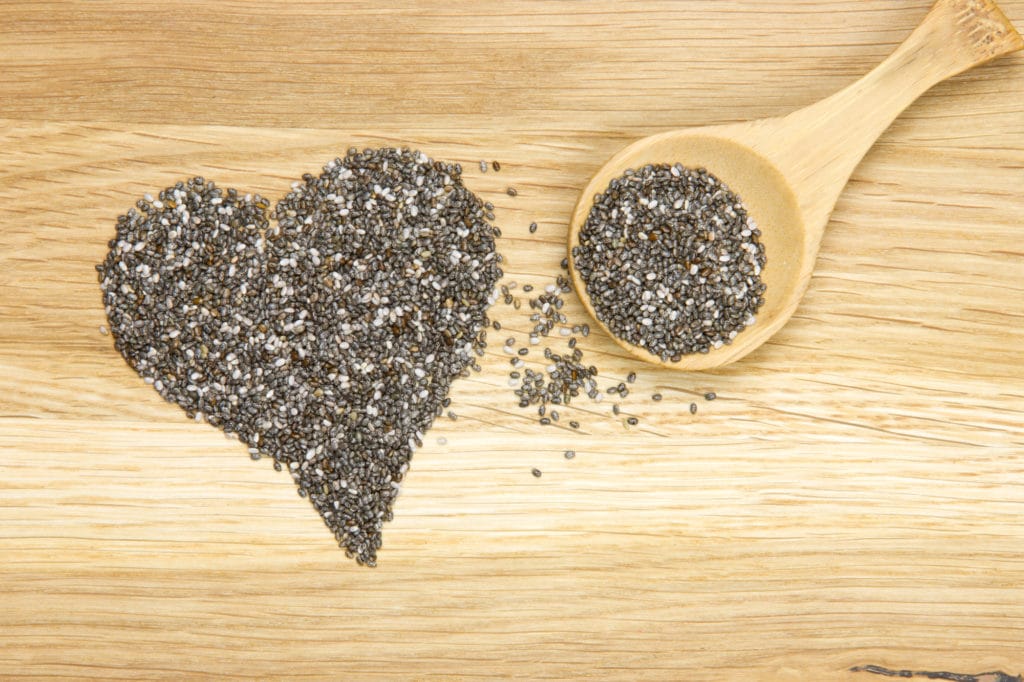
Health benefits of chia seeds
1. Chia seeds are one of the richest sources of dietary fiber. 100g of chia seeds contain almost 33g of fiber. The soluble fiber in chia seeds absorbs water (Chia seeds can absorb up to 12 times their weight in water). This causes them to expand in the stomach and create a feeling of fullness, despite eating less. Thus, chia seeds can help prevent overeating and obesity.
2. Insulin is secreted by the pancreas. Insulin is essential for the body because it helps move sugar from the blood into the cells for storage. However, if the cells are resistant to insulin, they cannot use insulin efficiently. Therefore, sugar cannot be moved into the cells so efficiently. Hence, blood sugar levels remain high. When the pancreas realizes that the blood sugar levels are high, it creates more insulin. With time, this can deplete the pancreas of cells that produce insulin, which happens in type 2 diabetes (Source: Healthline). High blood sugar levels can also damage the nerves and internal organs and also cause heart disease. According to a study on rats, chia seeds can improve insulin tolerance (Source: PubMed). This beneficial effect of chia seeds is probably due to their high fiber content. Thus, chia seeds can reduce the risk of type 2 diabetes and protect the body from other problems like heart disease.
3. Chia seeds are a rich source of fats. 100g of chia seeds contain almost 30g of fats. But most of them (almost 25g) are in the form of unsaturated fats. Unsaturated fats can regulate heart rhythm, improve cholesterol levels, and reduce inflammation (Source: School of Public Health, Harvard).
4. The type of unsaturated fats prevalent in chia seeds are omega-3 fatty acids, which are essential for the body. ALA (Alpha-Linoleic Acid), an omega-3 fatty acid present in chia seeds, can reduce the ratio of omega-6 to omega-3 in the body. This can reduce the incidence of chronic health conditions like cancer, heart disease, and inflammatory conditions (Source: WebMD). Moreover, the fiber content in chia seeds can also help lower the LDL (bad) cholesterol and overall cholesterol levels in the body, thereby benefiting heart health. Thus, chia seeds are good for the heart.
5. Chia seeds are loaded with antioxidants like quercetin, myricetin, kaempferol, chlorogenic acid, and caffeic acid. These antioxidants protect the body from being damaged by free radicals, which are harmful chemicals produced in the body. Free radicals cause oxidative stress and damage, which leads to chronic diseases like cancer, heart disease, and even cognitive decline. But antioxidants can prevent these from happening by neutralizing the free radicals before they damage the body. Quercetin, chlorogenic acid, and caffeic acid may be effective in preventing cancer, maintaining blood pressure, and protecting neurons (Source: PubMed). Caffeic acid may also reduce inflammation.
6. Chia seeds are rich in essential minerals like calcium, iron, manganese, copper, selenium, phosphorus, and magnesium (Source: Healthline). Calcium helps strengthen bones, muscles, and nerves. Iron helps synthesize proteins that transport oxygen to various parts of the body. Manganese is needed for growth and development. Copper is important for heart health. Selenium and Magnesium help carry out several functions in the body. Phosphorus improves the health of bones and tissues in the body.
7. Chia seeds are 19% protein. Protein helps build muscles, cartilages, bones, and skin. It also increases the feeling of fullness and prevents overeating. Chia seeds also contain all nine essential amino acids. Amino acids help break down food, keep the skin, hair, and nails healthy, make hormones and neurotransmitters, build muscle, and boost the immune system (Source: Cleveland clinic).
8. Chia seeds are a good source of Vitamin B1 and Vitamin B3 as well. Vitamin B1 plays a major role in converting food to energy. Vitamin B3 may help lower cholesterol levels and boost brain function.
Risks
1. Chia seeds can prevent blood sugar levels from spiking. But if consumed regularly, it can make sugar levels decline significantly.
2. Chia seeds may be difficult for the body to digest. So, it might cause digestive issues.
3. Chia seeds might cause choking. When chia seeds and water are consumed in quick succession, chia seeds might expand in the throat and cause choking (Source: Research Gate).
4. ALA, one of the omega-3 fatty acids chia seeds contain, may cause prostrate cancer when consumed in excess (Source: PubMed). However, there are conflicting research studies to suggest that chia seeds might also reduce the risk of prostate cancer (Source: PubMed).
5. Chia seeds are rich in fats. Even though they are a good sort of fats, overeating can still lead to obesity.
Different hamster species vs. chia seeds
Chia seeds are healthy for humans. So, we can eat chia seeds in moderation. But can hamsters eat chia seeds? Even though that is a simple question, it is not easy to answer it. After all, there are different species of hamsters. So, the answer to the question, “Can hamsters eat chia seeds?” differs based on which hamster species we are talking about. In this section, let’s find out if each pet hamster species can eat chia seeds, and if they can eat, how much they can eat.
Can Campbell dwarf hamsters eat chia seeds?
Yes, Campbell dwarf hamsters can eat chia seeds. But since they are such tiny creatures, they should not eat too many chia seeds. Around 2 chia seeds per day is enough to give them the nutritional benefits chia seeds offer (Source: Just Hamsters).
Can Chinese dwarf hamsters eat chia seeds?
Yes, Chinese dwarf hamsters can eat chia seeds. But just like Campbell hamsters, they are also dwarf hamsters. So, you can give them no more than 2 chia seeds per day.
Can Russian dwarf hamsters eat chia seeds?
Yes, Russian dwarf hamsters can eat chia seeds. But since they are also dwarf hamsters, do not give them too many chia seeds. 2 seeds per day is the limit.
Can Roborovski hamsters eat chia seeds?
Yes, Roborovski hamsters can have chia seeds. Roborovski hamsters are the smallest hamster species. But they are also very active. Hence, they are not prone to diabetes or obesity as much as other dwarf hamsters. So, you can give them 2 to 4 chia seeds per day.
Can Syrian hamsters eat chia seeds?
Yes, Syrian hamsters can eat chia seeds. Syrian hamsters are the largest pet hamster species. So, they can eat more chia seeds (up to 8 per day).
Fun facts
Chia seeds
Chia seeds are produced by Salvia hispanica, an annual plant that belongs to the mint family (Source: Wikipedia). There are two types of chia seeds – Black and White. Black chia seeds are more common than white chia seeds. But there isn’t much difference between them except for the fact that black chia seeds are slightly richer in protein and white chia seeds are slightly richer in omega-3 (Source: Choosing Chia).
When soaked in water, a chia seed can absorb up to 12 times its weight in water, which gives it a gel-like appearance. Chia seeds can be added as toppings to other foods, or they can also be added to drinks like milkshakes, smoothies, etc.
Most of the global supply of chia seeds comes from the countries in South America.
Origin
Chia might have originated in South America. According to a 16th-century Aztec manuscript, the Aztecs cultivated it before the arrival of Columbus. It could have been as important to the Aztecs as maize since it was given as a tribute by the Aztecs to their rulers in 21 of the 38 Aztec provinces. Chia seeds were also given as offerings to the Aztec priests.
Today, chia is cultivated in its homeland of Central Mexico and Guatemala and in other South American countries like Argentina, Bolivia, and Ecuador.
Summary
Chia seeds are not only safe for you but also for your furry friends. They offer several health benefits:
- Chia seeds are a rich source of fiber, which can help prevent obesity, diabetes, and heart disease.
- They contain a lot of good fats, which are good for the heart.
- They are a rich source of antioxidants that protect the body from chronic diseases like cancer, heart disease, etc.
- Chia seeds contain essential minerals like calcium, iron, magnesium, copper, manganese, selenium, and phosphorus that the body needs.
- Chia seeds contain a lot of protein.
- Chia seeds contain B vitamins like B1 and B3, which can help convert food to energy, help lower cholesterol levels, and boost brain function.
So, chia seeds can be a healthy snack for your hamster as long as you feed them in moderation.
